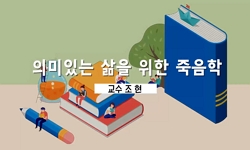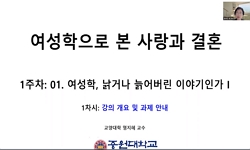이 연구는 현진건의 장편소설 적도에서 ‘정사(情死)’가 지연되는 양상을 정신분석학적 텍스트 비평 방식을 통해 살펴본다. 소설 적도 및 이 작품의 모티브가 된 강명화·장병�...
http://chineseinput.net/에서 pinyin(병음)방식으로 중국어를 변환할 수 있습니다.
변환된 중국어를 복사하여 사용하시면 됩니다.
- 中文 을 입력하시려면 zhongwen을 입력하시고 space를누르시면됩니다.
- 北京 을 입력하시려면 beijing을 입력하시고 space를 누르시면 됩니다.

현진건 장편소설 적도에 나타나는 정사(情死)의 지연 양상 연구 = Jeongsa Deferred - A Psychoanalytic Reading of the Postponed Double Suicide in Hyeon Jin-geon’s The Equator
한글로보기https://www.riss.kr/link?id=A109788169
-
저자
강다은 (한양대학교)
- 발행기관
- 학술지명
- 권호사항
-
발행연도
2025
-
작성언어
Korean
-
주제어
Hyun Jin-geon ; the Equator ; Jeongsa ; Love Suicide ; Kang Myeong-hwa Incident ; Love ; Death ; Enjoyment ; Surplus-Enjoyment ; Modern Subject ; 현진건 ; 적도 ; 정사 ; 강명화 사건 ; 사랑 ; 죽음 ; 근대적 주체 ; 향유 ; 잉여향유 ; 주체의 분열
-
등재정보
KCI등재
-
자료형태
학술저널
-
수록면
7-31(25쪽)
- 제공처
-
0
상세조회 -
0
다운로드
부가정보
국문 초록 (Abstract)
한편 적도의 주인공 김여해는 막상 사랑하는 연인과의 사이에 비극이 닥치자, 함께 정사를 감행할까 하다 그 대신 자신이 연인을 포기하면서 쾌감을 느낀다. 가지고 싶었으나 가지지 못하게 된 대상이야말로 주체에게 그것이 진정 가치 있는 것이었다는 환상을 불러일으키게 되는데, 이처럼 간절히 원하는 대상을 잃어버림으로써 그것으로부터 잉여향유를 얻는 김여해는 분열된 근대적 주체라 할 수 있다. 소설 속에서 정사는 김여해와 홍영애 사이에서 한번, 명화와 김상열 사이에서 또 한번, 모의되기만 할 뿐 실제로 발생하지 않는다. 이는 그러한 두 중단을 발생시킨 장본인 김여해가 정사 자체를 욕망의 대상으로 삼고 그 실패로부터 잉여향유를 취하는 것으로 볼 수 있으며, 분열된 근대적 주체의 욕망 구조의 전형을 보여준다.
이 연구는 현진건의 장편소설 적도에서 ‘정사(情死)’가 지연되는 양상을 정신분석학적 텍스트 비평 방식을 통해 살펴본다. 소설 적도 및 이 작품의 모티브가 된 강명화·장병천 사건 모두에서 실제 정사 행위는 발생하지 않는다. 그럼에도 불구하고 두 이야기는 공통적으로 오랜 기간 정사와 연관지은 수용과 논의, 연구를 유발해왔다. 정사는 사랑과 죽음의 기묘한 결합인데, 사랑은 본래 불가능성을 그 본질로 한다. 사랑의 주체는 사랑의 대상에게서 자신의 결여를 메워줄 무언가를 찾지만 대상은 그것을 줄 수 없기 때문이다. 그리고 그처럼 성취가 불가능하기 때문에 스스로를 뛰어넘어 존속하는 사랑의 속성은, ‘존재(exist)’하는 대신 고집스럽게 ‘존속(insist)’하는 ‘죽음 충동’의 그것과도 흡사하다. 이것이 ‘사랑하기에 함께 죽기를 선택하는’ 정사 개념의 기저에 있는 본질이라고 할 수 있다.
한편 적도의 주인공 김여해는 막상 사랑하는 연인과의 사이에 비극이 닥치자, 함께 정사를 감행할까 하다 그 대신 자신이 연인을 포기하면서 쾌감을 느낀다. 가지고 싶었으나 가지지 못하게 된 대상이야말로 주체에게 그것이 진정 가치 있는 것이었다는 환상을 불러일으키게 되는데, 이처럼 간절히 원하는 대상을 잃어버림으로써 그것으로부터 잉여향유를 얻는 김여해는 분열된 근대적 주체라 할 수 있다. 소설 속에서 정사는 김여해와 홍영애 사이에서 한번, 명화와 김상열 사이에서 또 한번, 모의되기만 할 뿐 실제로 발생하지 않는다. 이는 그러한 두 중단을 발생시킨 장본인 김여해가 정사 자체를 욕망의 대상으로 삼고 그 실패로부터 잉여향유를 취하는 것으로 볼 수 있으며, 분열된 근대적 주체의 욕망 구조의 전형을 보여준다.
다국어 초록 (Multilingual Abstract)
Jeongsa involves the paradoxical union of love and death. Love is fundamentally impossible—its subject seeks in the other what can never be fully given. The persistence of this impossible desire mirrors the nature of the death drive, which insists rather than exists. This underpins the structure of Jeongsa, where lovers choose to die together for love.
The protagonist Kim Yeo-hae in The Equator experiences a moment of tragic crisis with his beloved partner. Rather than committing Jeongsa together, he chooses to give up on his lover and derives a form of pleasure from this renunciation. The object that one desperately desires but ultimately cannot possess evokes the fantasy that it was truly valuable to the subject. In this way, Kim Yeo-hae gains surplus enjoyment through losing the passionately desired object, exemplifying the divided modern subject. Within the novel, Jeongsa is twice contemplated—once between Kim Yeo-hae and Hong Young-ae, and once between Myeong-hwa and Kim Sang-yeol—but never actually occurs. This can be seen as Kim Yeo-hae, who is the very cause of these two interruptions, desiring Jeongsa itself as an objet a and deriving surplus enjoyment from its failure. This exemplifies the typical structure of desire in the divided modern subject.
This study examines the deferred aspect of Jeongsa(情死, double suicide in the name of love) in Hyeon Jin-geon’s novel The Equator through a psychoanalytic lens. In both the novel and the real-life incident it draws upon—the Kang Myung-hwa and J...
This study examines the deferred aspect of Jeongsa(情死, double suicide in the name of love) in Hyeon Jin-geon’s novel The Equator through a psychoanalytic lens. In both the novel and the real-life incident it draws upon—the Kang Myung-hwa and Jang Byung-chun case—Jeongsa is ultimately not realized. Despite this, the narrative has consistently been read, discussed, and studied in the context of Jeongsa.
Jeongsa involves the paradoxical union of love and death. Love is fundamentally impossible—its subject seeks in the other what can never be fully given. The persistence of this impossible desire mirrors the nature of the death drive, which insists rather than exists. This underpins the structure of Jeongsa, where lovers choose to die together for love.
The protagonist Kim Yeo-hae in The Equator experiences a moment of tragic crisis with his beloved partner. Rather than committing Jeongsa together, he chooses to give up on his lover and derives a form of pleasure from this renunciation. The object that one desperately desires but ultimately cannot possess evokes the fantasy that it was truly valuable to the subject. In this way, Kim Yeo-hae gains surplus enjoyment through losing the passionately desired object, exemplifying the divided modern subject. Within the novel, Jeongsa is twice contemplated—once between Kim Yeo-hae and Hong Young-ae, and once between Myeong-hwa and Kim Sang-yeol—but never actually occurs. This can be seen as Kim Yeo-hae, who is the very cause of these two interruptions, desiring Jeongsa itself as an objet a and deriving surplus enjoyment from its failure. This exemplifies the typical structure of desire in the divided modern subject.
동일학술지(권/호) 다른 논문
-
김영하 초기 소설의 인식론 고찰― 단편집 호출 을 중심으로
- 한국비평문학회
- 백창익
- 2025
- KCI등재
-
‘여성’ 표상에 대한 이중적 시선― 박인환 시에서 ‘창부’와 ‘숙녀’ 사이의 거리
- 한국비평문학회
- 김지녀
- 2025
- KCI등재
-
소설에서의 생존 게임― 김영하의 퀴즈쇼 와 왕샤오보(王小波의 황금시대(黃金時代) 를 중심으로
- 한국비평문학회
- 적우비
- 2025
- KCI등재
-
1970년대의 전환시대 한반도에 대한 역사부정의 형식― 최인훈의 태풍 (1973)을 중심으로
- 한국비평문학회
- 최윤경
- 2025
- KCI등재




 DBpia
DBpia






